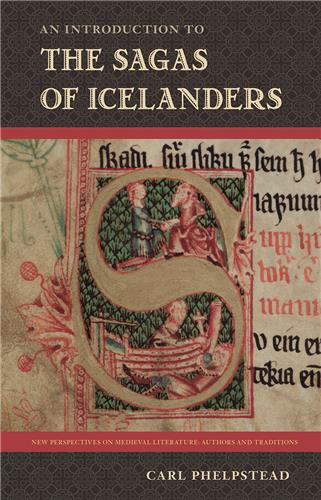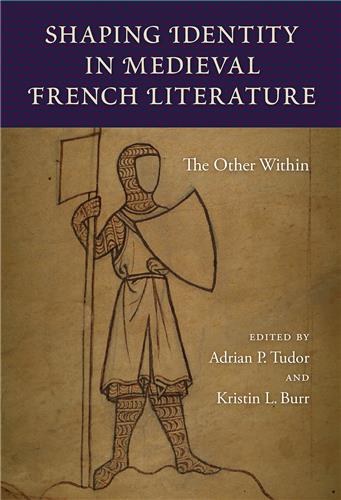An Introduction to Piers Plowman
Michael Calabrese
Foreword by R. Barton Palmer and Tison PughPaper: $29.95
“This lively book has no peers. . . . Readers seeking a one-stop shop for tools with which to engage with all things Piers could hardly do better than Calabrese’s Introduction. . . . [A] magnificent book.”—Medieval Review
“A welcome addition to . . . previously available handbooks, guidebooks, and companions.”—Studies in the Age of Chaucer
“Provides a running summary of the poem through its three widely accepted ‘versions,’ adding observations, lightly interpretive appreciations, and speculation about the author’s reasons for various revisions. The readings are clarifying and astute, bringing out moments rarely mentioned and offering fresh treatments of famous passages; the critic’s warm voice fosters enthusiasm.”—Choice
“A highly useful companion and resource.”—Modern Philology
“Introduce[s] readers to the full complexity of the poem and its critical tradition in an engaging and accessible way. . . . Calabrese draws on a shared library of texts and experiences with inventive analogies that bring the poem to life.”—Speculum
"A comprehensive and witty guide to understanding Piers Plowman in all its versions and a manifesto for the pure intellectual pleasure to be had from reading the text as it dynamically unfolds in each of the poet's reworkings."--Sarah Wood, author of Conscience and the Composition of Piers Plowman
"By innovatively working through all three of the poem's versions, Calabrese makes Piers Plowman accessible without sacrificing complexity, guiding readers expertly through the poem’s much-debated development."--Nicole R. Rice, author of Lay Piety and Religious Discipline in Middle English Literature
William Langland's allegorical poem Piers Plowman has found new critical and pedagogic life in the twenty-first century. Engaging with culture, religion, community, work, and the histories of government and popular revolt, the poem exists in three versions: the earliest, short A text (c. 1367-70), the much longer B text (c. 1377-79), and the later revision, the C text (c. 1382-87). Studies have frequently focused on the B text, leaving a gap in available resources for students of the poem. This is the first comprehensive introduction to Langland's masterful work that covers all three iterations, outlining the various changes that occurred between each. It thoroughly explores the versions in parallel study and offers new perspectives and approaches to the poem as an evolving whole.
Useful for individuals reading any version of Piers Plowman, this engaging guide offers a much-needed navigational summary, a chronology of historic events relevant to the poem, biographical information about Langland and his work in context with his contemporaries, and keys to characters and to proper pronunciation. Michael Calabrese's definitive and refreshingly lively volume allows readers to navigate the three versions of this daunting poem and to contextualize it within the literary history of Western culture.
Michael Calabrese, professor of English at California State University, Los Angeles, is the author of Chaucer’s Ovidian Arts of Love.
A volume in the series New Perspectives on Medieval Literature: Authors and Traditions, edited by R. Barton Palmer and Tison Pugh
- Sample Chapter(s):
- Excerpt
- Table of Contents
The readings are clarifying and astute, bringing out moments rarely mentioned and offering fresh treatments of famous passages; the critic’s warm voice fosters enthusiasm in and careful attention to a poem that needs both.
--Choice
This lively book has no peers. . . . Readers seeking a one-stop shop for tools with which to engage with all things Piers could hardly do better than Calabrese’s Introduction.
--Medieval Review
Easy to read, engaging, and often illuminating; [Calabrese] enables students to make sense of the poem’s disjointed and tangential style; and he inspires them to appreciate Langland’s craft.
--Comitatus
A handy vade-mecum.
--Modern Language Review
A welcome addition to . . . previously available handbooks, guidebooks, and companions.
--Studies in the Age of Chaucer
Introduce[s] readers to the full complexity of the poem and its critical tradition in an engaging and accessible way. . . . Calabrese draws on a shared library of texts and experiences with inventive analogies that bring the poem to life.
--Speculum
Offer[s] new and seasoned readers of Langland’s poem a highly readable overview of the poem and its core ideas. . . . Witty, insightful and readable.
--Pacific Coast Philology
It is refreshing to read an author so attuned to the poem’s aural artistry. . . . Langland would approve.
--Yearbook of Langland Studies












